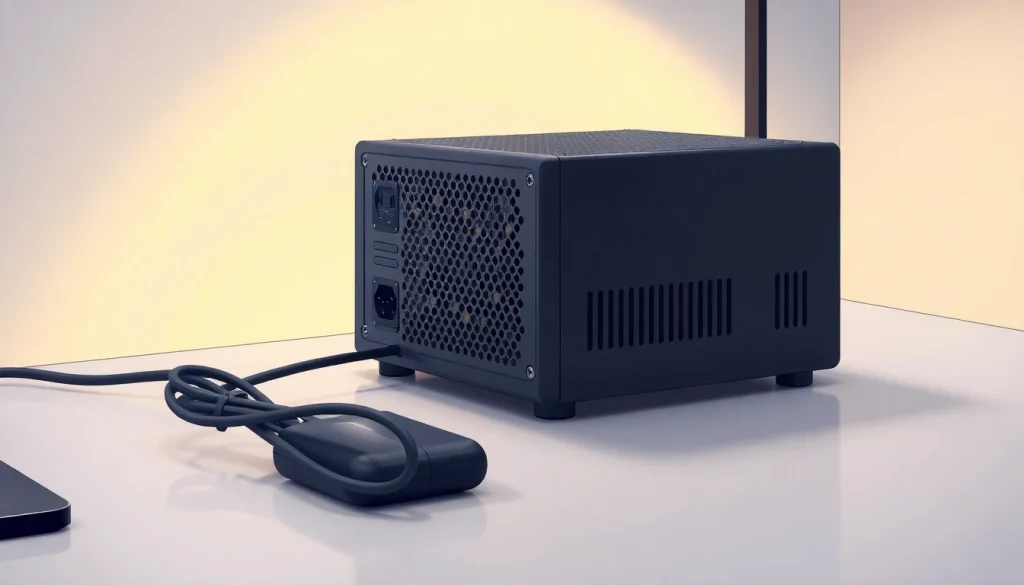Understanding Power Supply Manufacturers
The significance of a reliable power supply in both electronic and electrical systems cannot be overstated. Whether in personal computers, industrial equipment, or consumer electronics, power supplies act as crucial components that convert and regulate electrical power to ensure optimal operation. In this comprehensive guide, we will delve deep into the world of power supply manufacturers, exploring their roles, the components involved, and standards that govern their production.
What is a Power Supply Manufacturer?
A power supply manufacturer is a company that designs and produces power supply units (PSUs) which convert electrical energy into usable power for various devices. These manufacturers are specialized entities that integrate multiple engineering disciplines, including electrical, mechanical, and sometimes software engineering, to create products that meet specific energy conversion needs. The performance of a PSU can significantly impact overall system reliability and efficiency, making the choice of manufacturer a crucial decision for consumers and businesses alike.
Key Components of Power Supplies
At the core of every power supply is a combination of essential components that ensure efficient energy conversion and distribution. Understanding these components is vital for evaluating the quality and suitability of a power supply unit:
- Transformer: Converts high voltage AC to low voltage AC.
- Rectifier: Converts AC to DC, most commonly using diodes.
- Filter: Regulates and smooths out the output voltage to reduce fluctuations.
- Voltage Regulator: Ensures that the output voltage remains constant under varying load conditions.
- Cooling System: Manages the heat generated by the components, using fans or heatsinks.
Standards and Certifications in Manufacturing
Power supply manufacturers are required to adhere to a variety of industry standards and certifications to guarantee safety, efficiency, and reliability. Some of the most recognized certifications include:
- ISO 9001: Indicates a robust quality management system within the manufacturing process.
- CE Marking: Ensures compliance with European health, safety, and environmental protection standards.
- UL Certification: Certifies that products meet specific safety requirements laid out by Underwriters Laboratories.
These certifications not only enhance manufacturer credibility but also provide consumers with the assurance that their power supplies meet strict safety and performance benchmarks.
Top Power Supply Manufacturers in the Industry
With numerous brands available in the market, it’s essential to align your choice of power supply manufacturers with quality, reliability, and performance metrics. Below, we will explore some of the leading players in the power supply industry.
Leading Brands: Who to Trust
Several manufacturers have established themselves as leaders in the power supply business through decades of innovation and quality assurance:
- Seasonic: Renowned for producing high-performance power supplies, Seasonic is often praised for its engineering excellence and reliability.
- Corsair: Known for its premium PC components, Corsair offers power supplies that provide excellent value and performance, especially in gaming setups.
- EVGA: This brand is favored among gamers for its robust power solutions that support high-performance hardware.
- Mean Well: A major player in industrial power supplies, Mean Well is known for its wide range of standard and custom products.
Comparing Market Leaders
When choosing a power supply manufacturer, it’s important to compare their offerings based on various factors:
- Warranty Period: Manufacturers like Corsair often provide lengthy warranties, ensuring customer satisfaction and product reliability.
- Efficiency Ratings: Look for certifications like 80 PLUS which indicate efficient operation; Seasonic frequently earns platinum ratings.
- Customer Reviews: Pay attention to user feedback for insight into reliability and performance under real-world conditions.
Certifications and Their Importance
Certifications play a critical role in the decision-making process, as they inform buyers about the quality and efficiency of power supplies. Familiarizing yourself with the significance of various certifications can help in making a more informed purchasing decision.
Choosing the Right Power Supply for Your Needs
Selecting the appropriate power supply unit involves numerous considerations that hinge on the intended application and performance requirements. Whether for a gaming rig, a workstation, or industrial machinery, the right choice can make all the difference.
Factors to Consider When Buying
Here are the crucial factors to evaluate when purchasing a power supply:
- Wattage: Calculate the total wattage required for all components to ensure the PSU can handle peak loads.
- Form Factor: Check compatibility with your case, as PSUs come in various sizes (e.g., ATX, SFX).
- Modular vs. Non-Modular: Modular PSUs allow for better cable management by letting you connect only the cables you need.
Understanding Power Ratings and Efficiency
The power ratings and efficiency of a PSU are essential metrics that dictate performance:
- Efficiency Ratings: Higher efficiency means better energy use and lower electricity costs. Look for units with at least 80 PLUS Bronze ratings.
- Ripple Voltage: Low ripple is crucial for high-performance systems, as it ensures stable power delivery.
- Transient Response: A unit must quickly adjust to load changes to maintain stable output.
Common Mistakes to Avoid
When purchasing a power supply, avoid these frequent pitfalls:
- Overestimating Wattage Needs: Many users overestimate, leading to unnecessary expense; use a wattage calculator for accuracy.
- Ignoring Efficiency Ratings: Opting for lower-rated units can result in higher long-term costs.
- Neglecting Reviews: Always check consumer reviews to gauge reliability over time.
Innovations and Trends in Power Supply Manufacturing
The landscape of power supply manufacturing is ever-evolving, driven by technological advancements and market demands. Staying abreast of these trends can help consumers make informed decisions.
Technological Advancements to Watch
In recent years, several innovations have taken the industry by storm:
- Digital Power Control: Digital PSUs offer enhanced efficiency and flexibility in voltage regulation through advanced power management techniques.
- Smart PSUs: Integration of IoT capabilities allows for remote monitoring and control of power supplies.
- High Wattage Units: With the increase of power-hungry CPUs and GPUs, manufacturers are producing higher wattage units without compromising efficiency.
Emerging Powers in the Market
While established brands dominate the sector, emerging companies like XP Power and FSP Group are gaining recognition for their commitment to quality and innovative solutions. They are paving the way for competition through unique product offerings and advancements in technology.
Sustainable Practices in Manufacturing
Increasing awareness around environmental impact is pushing manufacturers to adopt sustainable practices. Initiatives include:
- Eco-friendly Materials: Utilization of recyclable and sustainable components in production.
- Energy-efficient Processes: Employing green manufacturing processes to minimize waste and conserve energy.
The Future of Power Supply Manufacturers
With growing technological capabilities and environmental considerations, the future for power supply manufacturers holds several promising trends.
Market Projections and Growth Opportunities
The global demand for power supplies is projected to grow significantly due to the rise of electric vehicles, renewable energy systems, and advanced computing solutions. Manufacturers that can innovate and adapt will find abundant opportunities.
Impact of AI and Smart Technologies
Artificial intelligence is beginning to transform the power supply sector, with predictive analytics enabling manufacturers to optimize performance, enhance reliability, and improve customer service.
Preparing for the Next Decade in Power Supply Development
To remain competitive, manufacturers must invest in research and development, focusing on efficiency, reliability, and sustainability to meet the demands of the future. Additionally, embracing partnerships with tech giants can foster innovation, ensuring that power supply units continue to meet the evolving needs of consumers.


